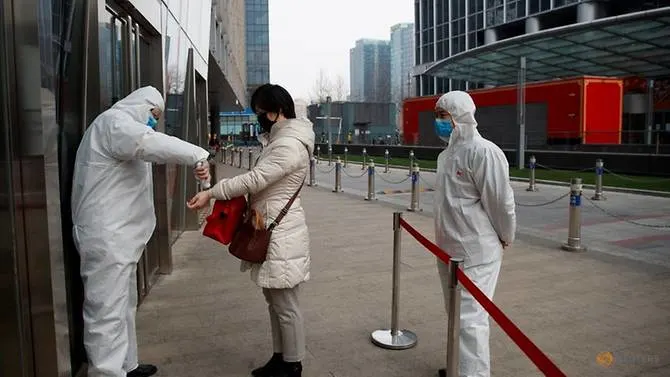Counting the price: Lessons from China's battle against COVID-19
08 June, 2020

All over the world, many countries are needs to ease restrictions after months of economically stifling lockdowns to curb the spread of COVID-19.
As the initial epicentre of infection, China was the first to impose a strict lockdown on an incredible number of its residents.
A lot of its enterprises are actually back at the job, and their connection with the “new normal” could provide lessons for other countries around the world.
In the southern city of Suzhou, it really is almost business as usual for Manuli Hydraulics.
After a three-week shutdown, operations sprang back again to life in mid-February.
The hydraulic solutions manufacturer is now operating at full capacity, however, not before making sure safety precautions were in the offing.
"When we returned to work, our production rate was was quite low, not more than 40 per cent due to the fact a lot of folks were still stuck in the native villages where they head to during Chinese New Year," said Mr Luca Pozzi, general manager for China and Southeast Asia at Manuli Hydraulics.
"But then progressively, people start to get back and by beginning of March we reached 90 per cent of capacity," he said.
Factory employees are actually required to submit a daily health declaration and go through a health screening before they enter the premises. Their temperature is taken, and masks, safety goggles and gloves are compulsory.
All types of face-to-face interaction have been banned, and meetings take place on online platforms.
Cleaning protocols are also stepped up.
The additional measures have not slowed up production, said Mr Pozzi, adding that they instead enable employees to both continue working and stay safe.
"You will find a way to work altogether protection," said Mr Pozzi.
"Cleaning is just an operation that requires a few minutes for each and every office. These are businesses that aren't affecting, neither the production, nor impacting our bring about term of income," he said.
Having maintained a wholesome inventory before the coronavirus crisis also meant that Manuli Hydraulics could restart production quickly.
The company usually keeps at least three months’ worth of inventory because of its production materials and could resume operations even if its suppliers were completely shut down.
For smaller firms, however, the crisis has taken a toll on the supply chains.
The supply chain is merely as strong as the weakest link in the chain, said Karel Eloot, senior partner at McKinsey & Company in Shanghai.
"There’s an extremely different impact of COVID-19 on different sizes of companies. Large companies are better quality. But at the other end, and that’s where in fact the suppliers are, they are usually smaller and mid-sized enterprise and these businesses we have seen are more susceptible to the impact of this crisis," he said.
Smaller companies are more vunerable to cash flow issues throughout a crisis and might not exactly be capable of geting usage of enough bridge funding. Because of this, they are more vunerable to business failure, he said.
Away from the manufacturing space, retail and food and beverage outfits have also been forced to change just how they operate.
Ms Jessie Qian, head of consumer and retail at KPMG China, said that the pandemic sparked changes in consumer behaviour that subsequently hastened business transformation, particularly around digitalisation.
Retailers will now have to change the way they consider their customers, said Mr Eloot.
While cleaning and social distancing measures will probably increase operational costs, retailers could have a straight bigger challenge.
Footfall at malls was severely damaged through the lockdown, and it could take a while for demand to return to previous levels.
The crisis can be forcing retailers to think about longer term challenges and transformation.
As companies get back to work, experts said, it is necessary to manage expectations.
“In the near term, rethinking the cost of doing business can be very important. Cashflow management, product optimisation and a supply chain review - all of this can help a company to survive and stay competitive during the COVID-19 pandemic and through the recovery stage," said Ms Qian.
Source:
TAG(s):
